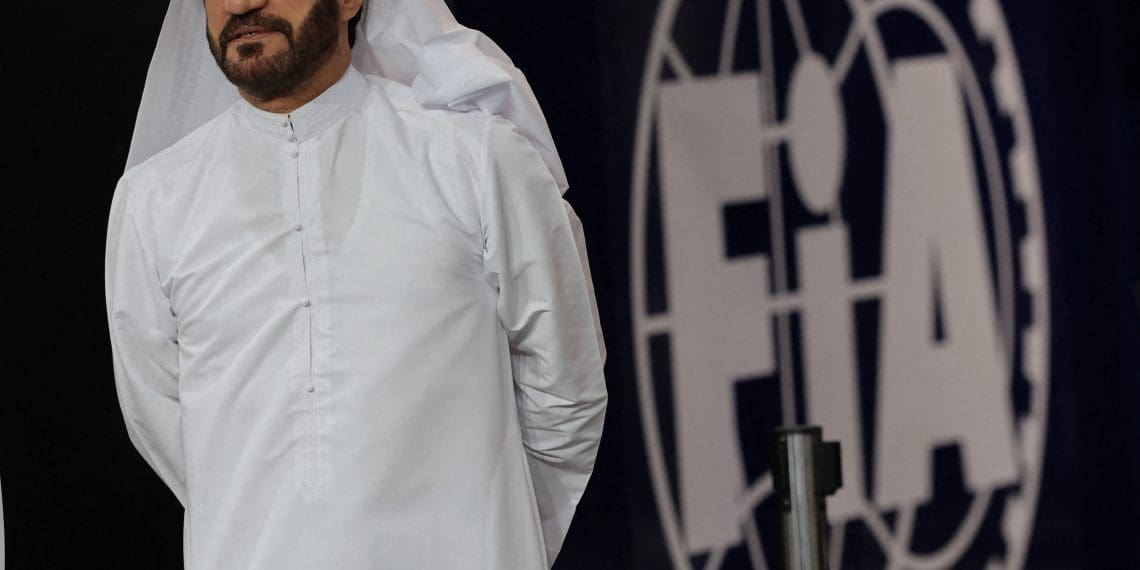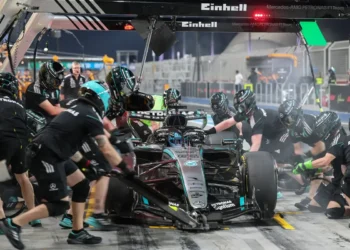The FIA is reportedly on the brink of implementing sweeping changes to its ethics complaints procedure, granting President Mohammed Ben Sulayem unprecedented control over investigations into the organization’s leadership. If approved at the FIA General Assembly on December 13th, these changes could redefine how accountability is handled within motorsport’s global governing body, raising significant concerns about transparency and checks on executive power.
Rewriting the Rules
The proposed changes would give Ben Sulayem and Carmelo Sanz de Barros, the President of the FIA Senate, direct oversight of all ethics complaints. This would effectively dismantle the current system where independent bodies, such as the audit committee, handle investigations into alleged misconduct. If passed, it would remove the authority of independent investigators and grant Ben Sulayem greater autonomy over the FIA’s operations.
This motion follows a tumultuous year for the FIA, marked by controversies involving Ben Sulayem’s leadership. Allegations have included financial mismanagement, interference in race operations, and a contentious $1.5 million “president’s fund” to pay member clubs, which hold the power to elect the FIA president.
Ethics Complaints and Whistleblower Allegations
The FIA has been embroiled in several high-profile disputes under Ben Sulayem’s presidency, including:
- Saudi Arabian Grand Prix: Allegations surfaced that Ben Sulayem interfered in the outcome of the race.
- Las Vegas Grand Prix: Reports claimed he instructed FIA officials not to certify the circuit before the inaugural event.
While these allegations were dismissed, the fallout has been significant, with numerous resignations and terminations among senior FIA officials. These include the departures of Race Steward Tim Mayer, Compliance Officer Paolo Basarri, and Audit Committee Head Bertrande Badre.
A Presidency Under Fire
The organizational shakeup has led to accusations that Ben Sulayem is consolidating power at the expense of transparency and independence. Critics argue that replacing the audit committee and centralizing complaints handling will stifle accountability. This sentiment is echoed in the resignations and dismissals that have plagued the FIA’s ranks, with some claiming they were blindsided by their removal.
For instance, former Race Steward Tim Mayer alleged he was informed of his termination via text message, and newly appointed Janette Tam was sensationally fired before officiating her first Formula 2 race.
Driver Discontent and Rule Tweaks
Adding to the controversy, Ben Sulayem has faced backlash from Formula 1 drivers over changes to the FIA’s rules on language use. After Max Verstappen and Charles Leclerc faced penalties for swearing during press conferences, the Grand Prix Drivers’ Association (GPDA) issued a strong statement condemning the ruling and calling on Ben Sulayem to reflect on his own conduct.
The amended Article 12.2.1k of the sporting code now subjects drivers to penalties for offensive language, a change seen by many as excessive and misaligned with the realities of the high-pressure racing environment.
The Stakes for the FIA
With the December 13th vote looming, the FIA stands at a crossroads. If the proposed changes pass, they could signal a fundamental shift in how the organization handles ethics, accountability, and governance. For an entity that presides over the high-stakes world of motorsport, these developments could reshape not only its internal dynamics but also its relationship with the teams, drivers, and fans who rely on its impartiality.
As the motorsport world watches, the FIA’s next steps will have far-reaching implications for the future of global racing governance.










